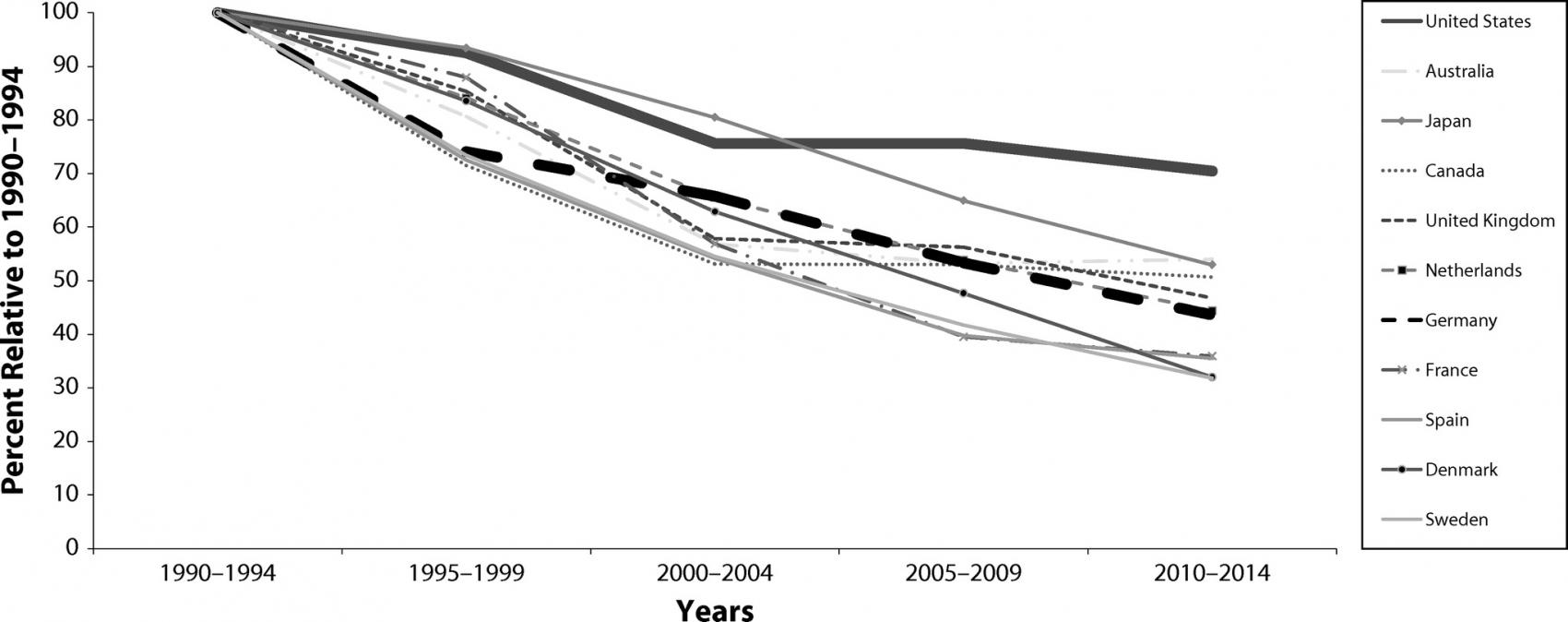
Is Walking and cycling safer than 25 years ago? Spoiler: YES
 The prominent researchers Buehler & Pucher found that far fewer people have died walking and cycling over the years since the early 90s. Reviewing data they obtained from OECD, they report that pedestrian and cyclist mortality rates decreased between 35 and 75% (that's per capita by the way for the specialists). While these rates do not adjust for changes in walking and cycling over time, the large reductions suggest the death rates actually have gotten much much lower in the last 25 years in all of the 11 countries they examined. This included the United States, Australia, Japan, Canada, the UK, Netherlands, Germany, France, Spain, Denmark, and Sweden.
The prominent researchers Buehler & Pucher found that far fewer people have died walking and cycling over the years since the early 90s. Reviewing data they obtained from OECD, they report that pedestrian and cyclist mortality rates decreased between 35 and 75% (that's per capita by the way for the specialists). While these rates do not adjust for changes in walking and cycling over time, the large reductions suggest the death rates actually have gotten much much lower in the last 25 years in all of the 11 countries they examined. This included the United States, Australia, Japan, Canada, the UK, Netherlands, Germany, France, Spain, Denmark, and Sweden.
Less death and injury to cyclists and pedestrians is a good thing by itself, most of us would agree. But perhaps more important, at least for some of us, is that safer walking and cycling increases levels of walking and cycling especially among women, children, and senior citizens. Therefore increasing walking and cycling would help improve the currently very low physical activity levels in most developed countries and thereby contribute to improving public health.
What’s special about this research? The data used to calculate the rates are population-level numbers and not sample estimates. This means we can have much more confidence in it than statistics that ARE based on estimates derived from samples.
In their discussion of the results, Buehler & Pucher are careful to note that their results “do not necessarily mean that walking and cycling conditions have been getting safer… …The difference in fatality and serious injury trends might be attributable to improved emergency medical technology…”
The conclude noting that roads are the most deadly location for cycling. Research shows that separate cycle paths, car-free zones, residential streets which have been “traffic-calmed” to have slower speeds and less traffic are much safer places to walk and cycle. “Thus, the provision of more and better separate facilities is a key to improving overall walking and cycling safety” conclude Buehler & Pucher.
Read more in the full article which is available online at no charge. By the way, this isn't fake news. It is peer-reviewed research. In the spirit of full disclosure: I am in favor of walking and cycling in our towns and cities. And together with public health experts from World Health Organisation and Cavill, we are very pleased to offer a free HEAT Webinar: the HEAT tool and its usage in promoting cycling 27 Feb, 2017 13:30 PM - 14:30 PM.
Scientific research article: Trends in walking and cycling safety: recent evidence from high income countries with a focus on the United States and Germany by Ralph Bueller and John Pucher. Published February 2017 in The American Journal of Public Health. Find it here.
Related links
HEAT Webinar
About Pucher's research
Children are the Future of Cycling: City Cycling Talk with John Pucher
Regions:
Contact the author
Recent news!
Upcoming events
Contact Us
Avenue des Arts, 7-8
Postal address: Rue de la Charité, 22
1210 Brussels, Belgium









